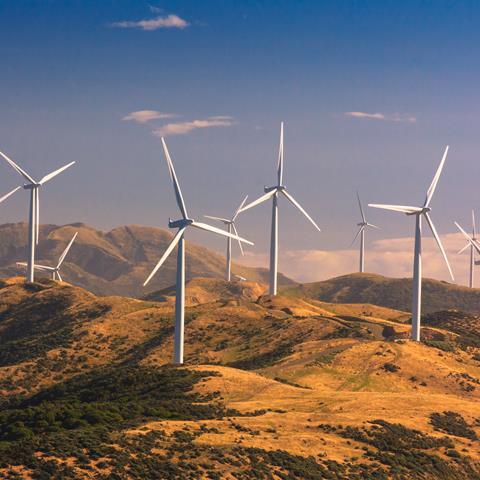By Fiona Reynolds, CEO, the PRI, and Phil Bloomer, Executive Director, Business & Human Rights Centre
Green investments that support our transition to a low-carbon economy are urgently necessary for the health of both climate and people. The race to increase production of and access to renewable energy is central to this global transition, but so is improving human rights in the process.
As the EU Green Bonds Standard proposal published in June signals, we need stronger scrutiny over green investments. Investors can play a leading role in highlighting human rights risks and in urging investees to develop robust processes to identify and address them in their renewable energy operations. If investors take up this opportunity, they can help protect both the planet and people, and create a more just, safe, and sustainable world.
The EU Green Bonds Standard is a welcome start, as it requires minimum social safeguards in the form of respect for fundamental labour rights, which are key for a just transition. However, in its current form it falls short in ensuring investors take all high-risk human rights issues into consideration.
According to reports received by the Business & Human Rights Resource Centre, renewable energy is now the industry with the third highest number of threats against human rights defenders worldwide. We have recorded 152 allegations of human rights abuses linked to renewable energy projects since 2010, with two-thirds of these allegations occurring just in the last two years. Most of the allegations are related to local and indigenous communities who live and work in areas where renewable energy projects operate who are too often subject to threats and intimidation, and are denied their right to provide free, prior, and informed consent to projects on their lands. While this trajectory is concerning, there is still time for intervention before the industry becomes tainted by these abusive practices.
Investors can help renewable energy companies focus on a fast and fair transition – one that tackles climate change without abusing human rights. A new briefing from the Business & Human Rights Resource Centre provides investors with snapshot overviews of the main human rights risks and strategic engagement opportunities for wind, solar, bioenergy, geothermal, and hydropower investments. It outlines four key questions investors can bring to companies:
- Does the company have a publicly available commitment to respect human rights that refers to internationally recognised human rights norms?
- Does the company have a human rights due diligence process in place to identify and address salient human rights risks before they become abuses?
- Does the company provide a grievance mechanism to workers and community members when rights abuses occur, as outlined by Principle 31 of the UN Guiding Principles on Business and Human Rights?
- Does the company expect its suppliers and business partners to adhere to the same human rights standards, and does it include this expectation in contracts and agreements?
Investors can help renewable energy companies focus on a fast and fair transition – one that tackles climate change without abusing human rights
Abuse allegations surface in every region of the world and across each of the sub-sectors of renewable energy development. In Indonesia’s central Java, for example, when communities living downstream from the construction of the Baturraden geothermal power plant protested over contamination of local water sources, 24 people were detained and several were beaten by Indonesian authorities. On the other side of the world, several indigenous community members in Oaxaca, Mexico faced intimidation and death threats after they expressed opposition to wind farms in the region.
Leaving human rights risks unaddressed can lead to negative impacts on broader climate change goals, as projects may be delayed or cancelled when workers or local communities challenge company abuses. In Kenya, the planned Kinangop Wind Park was cancelled after local communities protested, claiming they were not adequately informed or consulted and that there were not measures in place for providing relocation or compensation to those who would be most affected. Kinangop Wind Park Limited claimed KES 31 billion (USD 308 million) in damages against the Kenyan government. In July 2018, a London court dismissed the charges.
These types of project delays or cancellations can impact investments in renewable energy projects or component manufacturers, and can also have ramifications further down the supply chain when end-user energy purchases in tech and other industries are not able to access the clean energy supplies they increasingly rely on.
A handful of companies have already started to implement practices to ensure respect for human rights. For example, Danish wind energy company Orsted has signed the Just Transition Pledge to guarantee fundamental labour rights throughout its operations. Canada’s W Dusk Energy adopted an indigenous-owned model which embeds respect for local communities’ rights at the core of its solar and wind power projects.
Mainstreaming renewable energy and respecting human rights as the industry matures and diversifies should not be considered mutually exclusive or competing priorities. Investors should engage with companies to heed the warning signs that have been documented so far, and make it clear that ignoring human rights abuses in the short term can magnify long-term consequences for their investments, their ESG commitments, and our shared climate goals.
This blog post was first published in Responsible Investor












